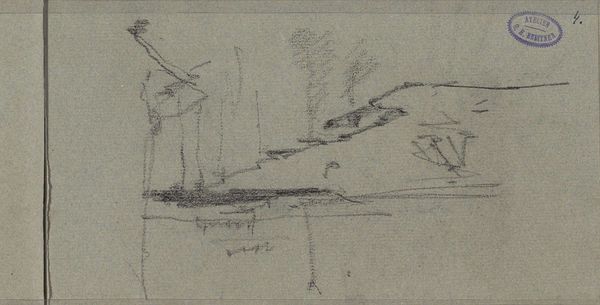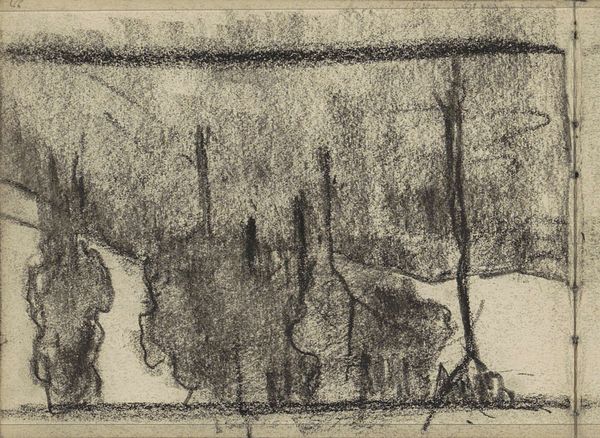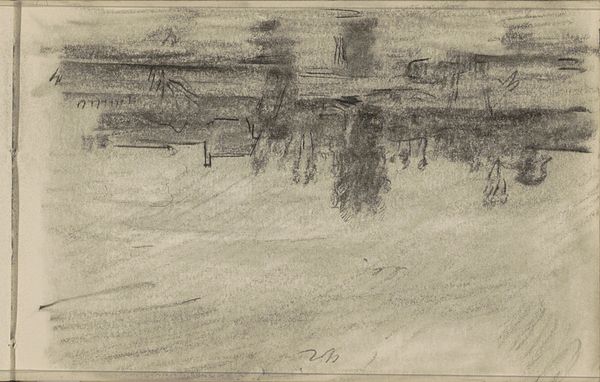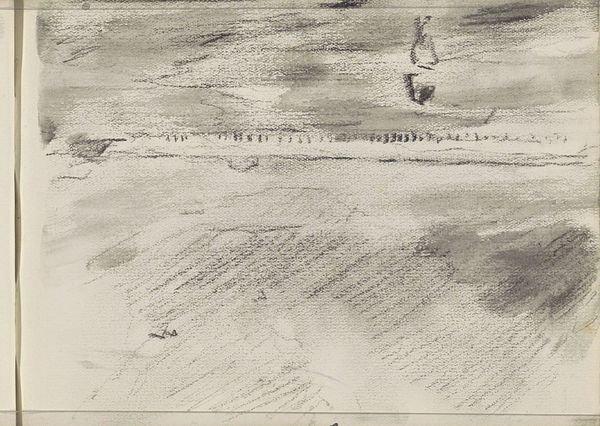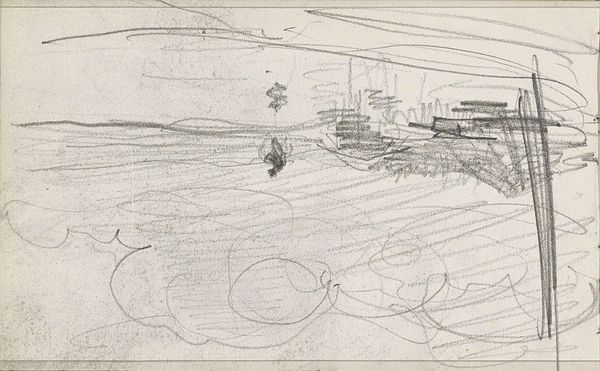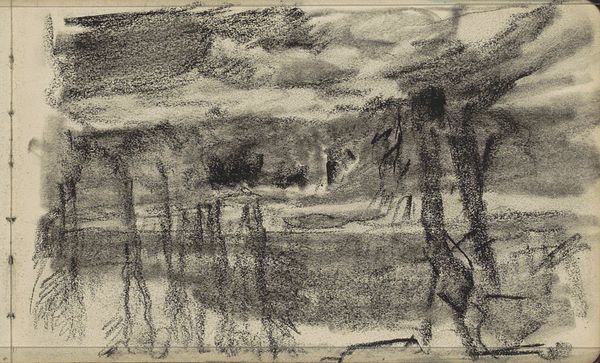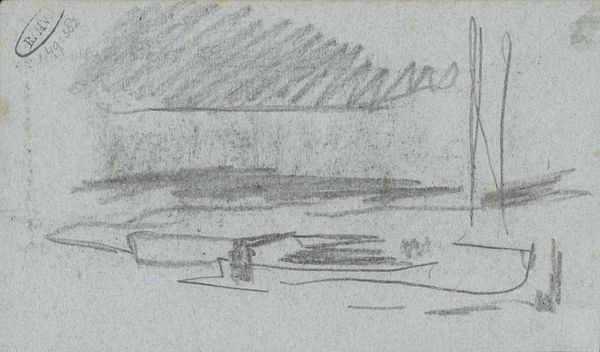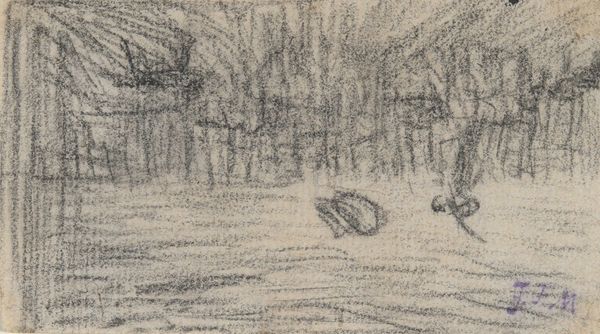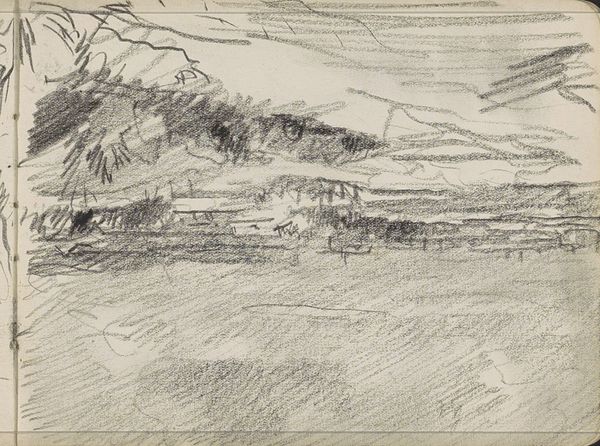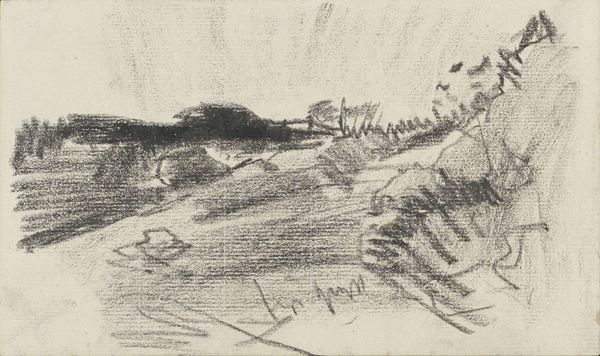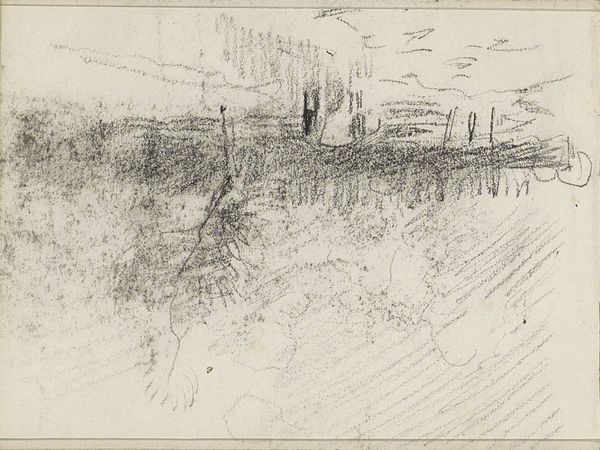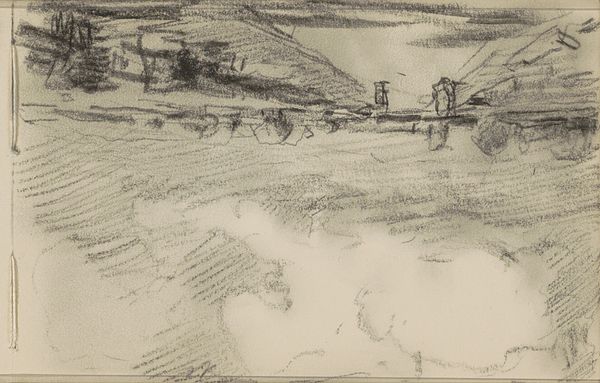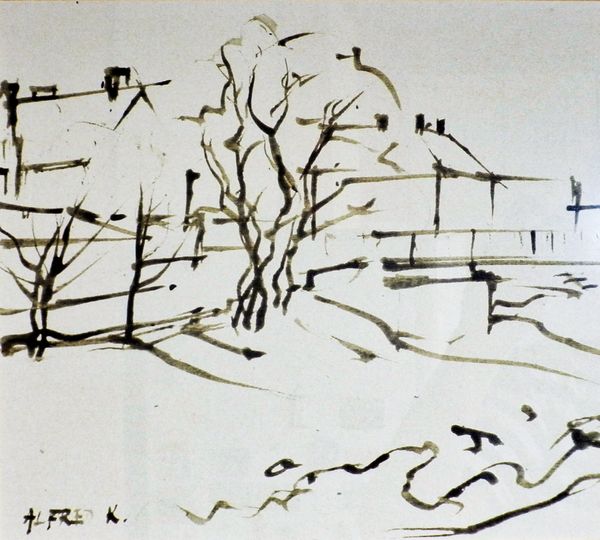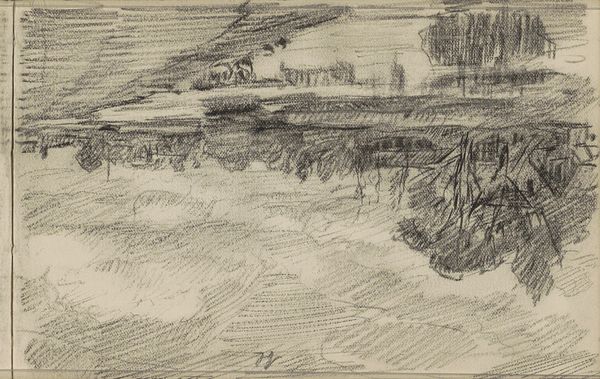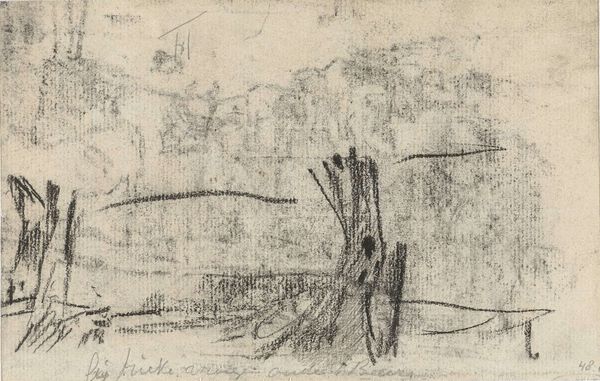
drawing, graphite
#
tree
#
drawing
#
garden
#
impressionism
#
landscape
#
graphite
#
park
#
post-impressionism
Copyright: Public domain
Editor: This graphite drawing from 1885, "The Parsonage Garden in the Snow" by Vincent van Gogh, is surprisingly stark. It looks more like an abstract study than a detailed landscape. What jumps out at you? Curator: Well, focusing on the materiality, consider graphite: a relatively cheap, easily accessible medium. Why graphite? What was Van Gogh able to accomplish using readily available means of production to study or portray? Editor: It’s interesting that you frame it in terms of what was *available* to Van Gogh. I guess I always just assume artists choose materials freely. Curator: Perhaps not entirely. What does the physical act of repetitive sketching – think about the labor involved – suggest about Van Gogh's process here? Is this rapid mark-making a symptom of resource constraints or evidence of exploration? Editor: It definitely seems like exploration. There's a looseness, especially with how he renders the trees. He’s not precious about representing them perfectly. Maybe he was more concerned with capturing a feeling. Curator: Exactly. Now, connect that ‘feeling’ to the socio-economic landscape. How might his limited means have informed, not restricted, that emotional expression? Think about his social context: the art world, the economy, access… Editor: So, are you suggesting that Van Gogh's financial or social situation—his being on the periphery, in some ways—actually fueled his artistic style? He used what he had around him? Curator: Precisely. By engaging in available materials he makes visible a type of labor that is critical for materialist analysis. This kind of work blurs conventional distinctions between 'high' art and common practices. Editor: That makes so much sense. I hadn't considered the significance of his material choices beyond just artistic preference. Thank you for sharing. Curator: The pleasure was all mine. It is about examining labor, the materiality of artwork, and socioeconomic context.
Comments
No comments
Be the first to comment and join the conversation on the ultimate creative platform.
